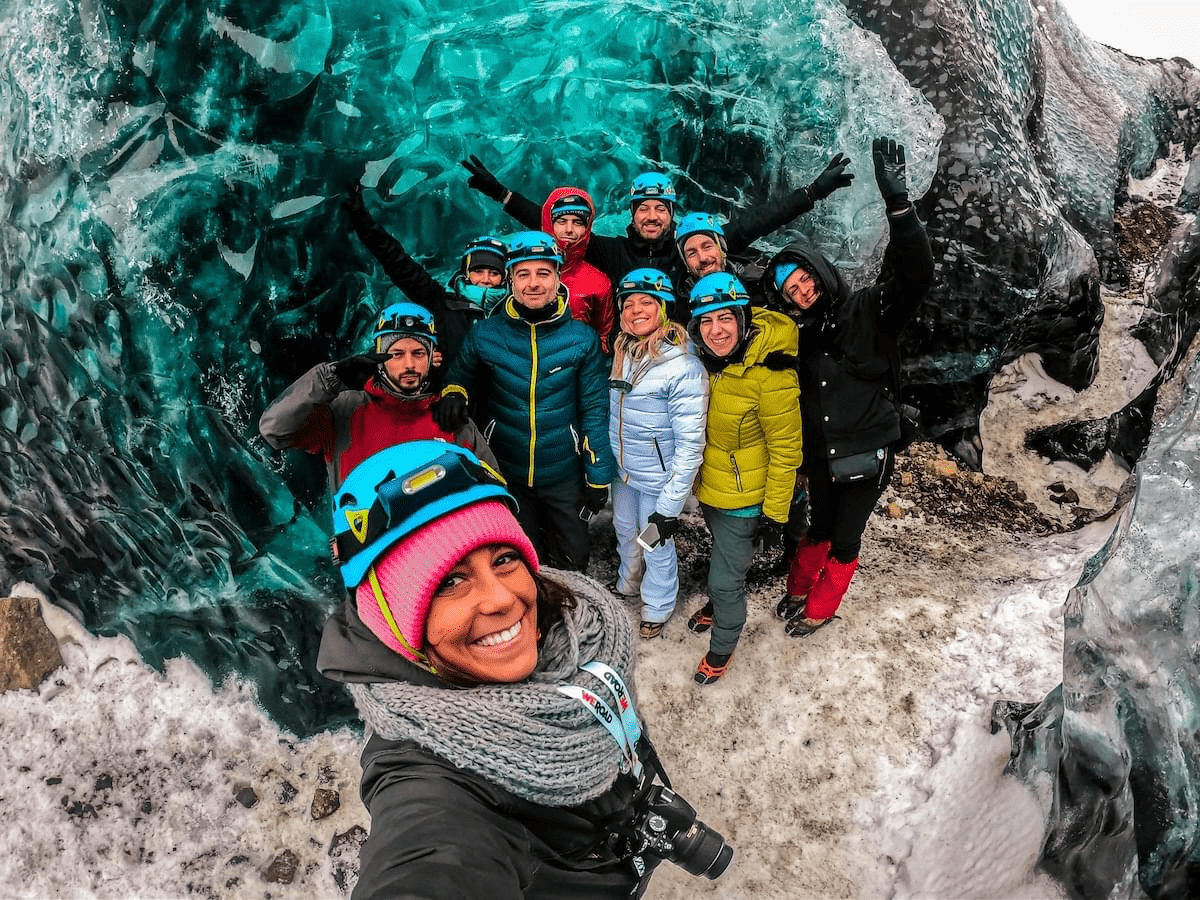
WeRoad powers CX and speeds responses with Zendesk AI
With Zendesk, WeRoad has evolved its customer service from a simple support system to an AI-driven platform, where human and virtual agents work together to deliver scalable, responsive and personalized service.

“Thanks to Zendesk, our customer service evolves with our company, ensuring fast and effective support even in complex situations.”
Senior TechOps Project Manager - WeRoad
“Zendesk’s AI agents optimize response times and contribute to an impressive 82 percent customer satisfaction rate in automation.”
Sales & CC Operations Coordinator - WeRoad
Zendesk Partnership
5 years
Locations
5 in Europe
Travel Users
200,000 since foundation
Main Support Channels
WhatsApp, Email & Social Media
30%
Tickets solved by AI agents
93%
CSAT
0 minutes
AI agent first response time
+20%
YoY increase in AI agent conversions
Traveling together and building community
WeRoad is a a tech-driven travel scale-up based in Milan, operating across Italy, Spain, the UK, France, and Germany, offering experiences in local language. Through its global web site, travelers from anywhere can join WeRoad adventures in English language.
Fueled by innovation, WeRoad has rapidly grown into Europe’s largest travel community, redefining group travel with a seamless, tech-powered experience.
The challenges of growth and first collaborations with Zendesk
In its early years, WeRoad aimed to deliver a consistent, high-quality user experience at scale. As it expanded, the company chose Zendesk to implement a multi-channel support system that could grow with its business and support its developer team, which makes up 35 percent of the company—a rare approach in the travel sector.
By integrating WhatsApp, social media, and email, WeRoad centralized interactions on a single platform, streamlining processes and improving response times.
In 2020, WeRoad began using Zendesk’s automation capabilities to further streamline its workflow. With intelligent ticket management and automatic categorization, the company’s customer support team was able to reduce the workload on repetitive requests and increase their focus on complex, personalized interactions.
The arrival of the virtual assistant “Bob”
In 2023, WeRoad introduced a new AI tool to its support strategy: Zendesk AI agents, with a virtual agent named “Bob” as the protagonist. The company’s primary goal was to reduce the human workload on low-value interactions and ensure that “WeRoaders” could get quick and accurate answers at all times.
In light of the strategic importance of the project and in order to ensure the success of the implementation, WeRoad created a transversal working team, coordinated by Bianca Dagheti and Marco Zerbini, respectively part of the technical team and the operational team.
Dagheti, as project manager, was the point of reference for the entire project. With a solid technical background, she managed every aspect of the implementation, acting as an interface with the tech department for all support requests and development activities, as necessary.
Dagheti followed the entire project cycle, from the initial analysis and impact forecasting phases, to the management of the post-launch development and optimization phase, constantly monitoring the results and identifying areas for improvement. A key aspect of her role was coordinating the flow of information, ensuring that operational and technical expectations were always aligned.
Zerbini, a seasoned operations expert, played a key role in the project by leveraging his deep knowledge of business processes and automation use cases. His firsthand experience with operational flows and customer requests allowed him to design a highly responsive AI agent. His contributions ensured seamless integration with existing processes, enabling a smooth transition and optimal customer experience.

On a practical level, both Dagheti and Zerbini were involved in building flows within the “AI agents” tool, acting as decision-makers on various aspects, such as the choice of using pre-set responses or letting the artificial intelligence generate them, or the choice of when and whether to pass the conversation to a person on the team, or to let the AI agent try to solve the problem.
The collaboration between Dagheti and Zerbini, as well as between the tech team and customer care, was fundamental to the success of the project. Both roles were complementary, and the continuous interaction between Dagheti and Zerbini ensured that the proposed solutions responded to both technical and operational needs.
As the project progressed amid continuous dialogue and exchange of information, the two roles became increasingly intertwined, leading to a mutual evolution of skills.
Zerbini, initially focused on operations, gradually took on the role of Automation Lead, taking charge of the creation, modification and optimization of flows, as well as the creation of new API integrations, acting more and more as a bridge between the Sales and Customer Care team and the Tech team.
Similarly, Dagheti, despite not having direct experience in operations, acquired an increasingly complete and operational vision, contributing decisively to the identification of improvements in flows and developing an approach increasingly oriented towards operational, as well as technical, efficiency.
The small size of the team and the synergy between the two roles delivered a solution that is well integrated with the work of the people in the Sales and Customer Care team, and perfectly capable of responding to the constantly evolving needs of WeRoad.
The success of the project is such that the organizational model adopted can be considered a best practice for all companies that intend to implement AI agents.
The integration of AI agents has radically transformed WeRoad’s customer service management. “Bob” was initially programmed to autonomously handle low-complexity tickets and answer frequently asked questions, such as booking details, cancellation deadlines, and trip change options. For more complex requests, “Bob” would automatically escalate to human agents, maintaining a seamless customer experience.

After months of continuous study, development, implementation and improvement, “Bob” is now able to handle much more varied and complex requests, providing even more personalized and complete answers.
Through API calls to the internal database, “Bob” automatically checks specific booking details (such as applicable discounts or change and cancellation policies), the confirmation status of a specific trip, or the average age of participants, responding accurately without directly involving the human team.
During the first three months of activity after the release (June, July and August, the hottest months also for WeRoad’s business), “Bob” managed 30 percent of tickets (considering all requests: chat, voice and email), freeing the team to focus on higher-value activities and improving the overall support experience.
The adoption of Zendesk AI agents has brought extraordinary results for WeRoad, reducing the first response time to 0 minutes in interactions managed by “Bob” and significantly improving the team’s productivity.
The automatic management of repetitive tickets has allowed the team to focus on more complex interactions that require more support, improving the overall quality of interactions: the simplest ones are not deprioritized, but the requester still receives a quick response, while the more delicate and personalized ones are treated as a priority by the WeRoad team.
This has helped increase both overall satisfaction and team morale. The AI agent has also contributed to an increase in the conversion rate percentage, which has grown by 20 percent year over year, thanks to the greater efficiency and speed of responses. The understood rate, or “Bob’s” ability to correctly interpret requests, has grown to 93 percent, demonstrating the effectiveness of continuous training and optimization of the system.
The Customer Satisfaction Score (CSAT) for interactions handled by “Bob” has reached 86 percent, an increase of 16 points from the initial launch. To continuously improve the automatic responses, the WeRoad team paid particular attention to:
– Eliminate loops in flows
– Continuous updating of FAQs in the knowledge base
– More complete answers thanks to new API integrations
– Intent training to raise understand rate
– Adding new use cases
Next steps: expanding AI agents
Today, automation with AI agents is applied only for the Italian market. Looking to the future, WeRoad plans to extend its use to other countries where WeRoad is present (Spain, France, Germany, UK) and also to new operational areas, such as real-time interactions with travel coordinators and local partners. The scalability of AI agents will allow the company to effectively manage the consolidation of its international presence and to offer a more global and uniform customer service.
WeRoad will continue to train “Bob”, updating him with the latest policies and changes, to remain a key part of the customer support team. WeRoad’s future with Zendesk is focused on a fully integrated customer experience, where AI and human agents work together to provide “WeRoaders” with responsive, personalized and always-on support.